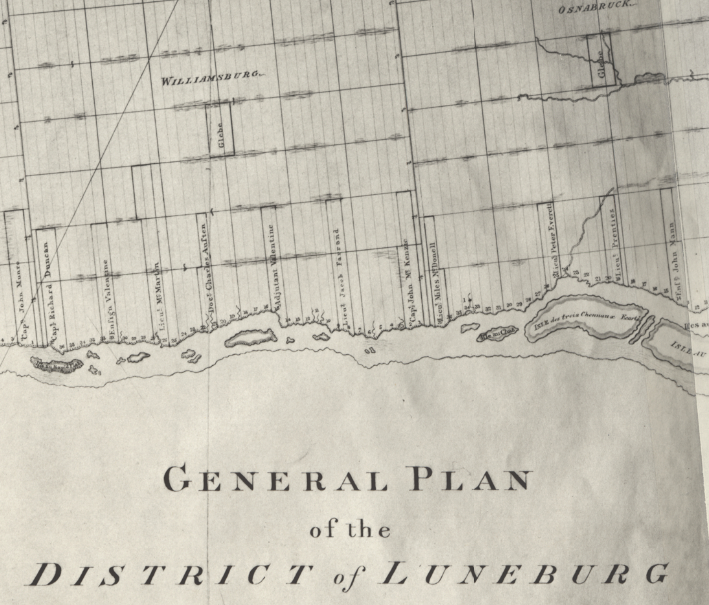Lunenburgh or the Old Eastern District is the earliest history of Cornwall. Published in 1890, it was written by Judge Jacob Farrand Pringle. It remains, to this day, a useful historical resource. Local historians tip our hats to him.
The title of Pringle’s book requires an explanation. The Eastern District was an early moniker for what eventually became the United Counties of Stormont, Dundas & Glengarry. As for Lunenburgh, between 1788 and 1792 it was the name of that district.
Or was it?
Most original documents from the early period use the spelling “Luneburg,” not “Lunenburgh.” This is not a semantic difference in spelling, but rather one that affects its pronunciation. Have we been misled by our beloved Pringle all these years?

The pioneer author addressed this issue on page 46 of his book. He explained that an 1831 published compilation of legislation used both spellings and that he considered Luneburg to be “a misprint.” He added that Lunenburgh was “the way in which the old inhabitants always pronounced the name.” Since original documents use Luneburg, Pringle was wrong in his misprint theory. He may also have been influenced by the fact that Lunenburgh is the anglicized version of the German word Luneburg. Other early writers, before and after Pringle’s time, have also chosen the Lunenburgh variation.
While it was an odd decision by Pringle to use the essentially-incorrect spelling of the word for the title of his book, it is also puzzling why he used the word at all. The name was employed only for a short period of time – four years at most – and during a period when the district encompassed an area greatly larger than Stormont, Dundas & Glengarry.
Regardless, Judge Jacob Farrand Pringle paved the way for future local historians and for this, we are thankful. Today his book is still in print, 134 years after its initial publication. I can only hope that my own books will still be read 134 years hence!